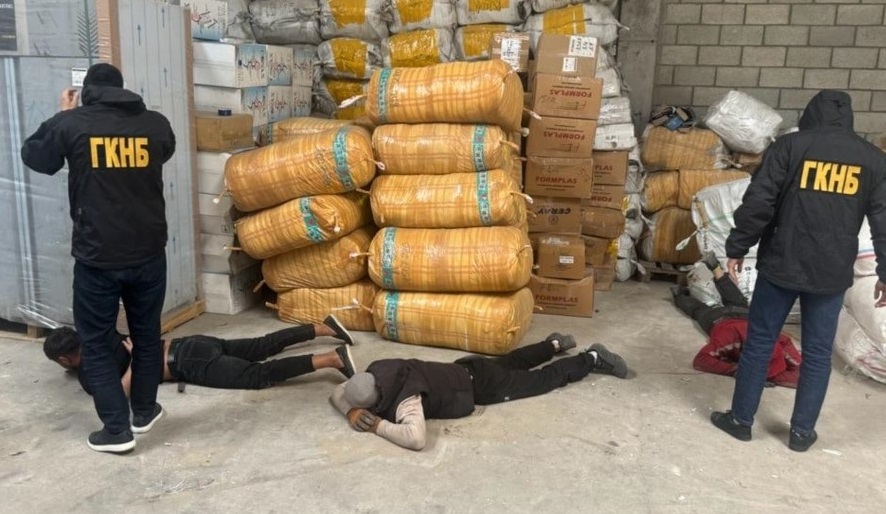Kyrgyz migrants become drug mules to Russia
In Bishkek, notices are circulating promising earnings of up to ,000 a week, twice the average monthly salary of a Kyrgyz worker, for “jobs” that are actually recruitment for drug couriers. Drug trafficking charges in Russia can carry a sentence of 20 years to life imprisonment. Many prisoners are sent directly to the front lines in Ukraine.
Bishkek (AsiaNews) - In Bishkek, the capital of Kyrgyzstan, it is not difficult to find offers for well-paid jobs in Russia. Many of them end up sending people to war in Ukraine, after giving them the illusion of being able to solve their financial problems.
Notices are also posted all over the city promising earnings of up to ,000 a week, twice the average monthly salary of a Kyrgyz worker, for jobs requiring a maximum of 3-4 hours a day, with free travel and accommodation in Russia.
A correspondent from Migrant Media contacted the Telegram account behind these tempting offers, and the response confirmed what was suspected: the work is indeed linked to the transport of illegal drugs.
Many Kyrgyz citizens accept these offers, despite the many risks involved. Drug trafficking charges in Russia can carry a sentence of 20 years to life in prison.
The “career of a drug courier” (kariera narkokurjera, as it is called) is actually very short, as Mirlan Toktobekov, a lawyer specialising in immigration issues, explains to Migrant Media, adding that “of all the crimes committed by Kyrgyz citizens in the Russian Federation, most are related to drug trafficking”.
A trial in which Toktobekov himself participated recently ended with a 15-year prison sentence for a 27-year-old Kyrgyz man for transporting a package.
In some cases, couriers involved in criminal schemes are then handed over to the police by the traffickers themselves, because ‘when the time comes to pay them, the organisers of the criminal scheme prefer to get rid of them by having them arrested,’ comments the Kyrgyz lawyer. In such situations, a foreigner in Russia who has been involved in drug-related activities has no chance of defending himself.
In general, “the rights of our compatriots in Russia are very poorly defended”, Toktobekov observes, and it is very easy to receive additional sentences beyond those actually related to illegal actions, because “people from Central Asia are easy targets in these systems”.
The Kyrgyz Interior Ministry has stated that the authorities in Bishkek are investigating to expose the organisers of criminal schemes involving their citizens, but the success of these actions is very limited.
As reported by Kanybek Usenov, spokesperson for the Kyrgyz Interior Ministry's Drug Control Service, checks are being carried out in coordination with Russia and other Central Asian countries.
During one of these investigations, the Kyrgyz authorities managed to shut down a website selling narcotics and arrested three suspects, one Kyrgyz citizen, one Uzbek citizen and one Russian citizen.
The consequences for foreigners accused of such trafficking in Russia can go far beyond years of imprisonment. According to data from the Russian Federal Penitentiary Service, there are currently over 30,000 foreign nationals in Russian prisons, 70% of whom come from Central Asia. In addition to harassment and violence in prisons, these prisoners are often forcibly recruited to participate in Russian military actions in Ukraine.
The Ukrainian project “I Want to Live” (Khoču Žit), which encourages occupying soldiers to surrender, has reported that over 3,000 Central Asian citizens are currently fighting in Ukraine on the Russian side, but several hundred have already surrendered to the Kiev army.
11/08/2017 20:05







.png)










